39 reading food nutrition labels
How to Read Food Labels: Your Complete Consumer Guide Details included on food labels are the nutritional composition of a food, as well as ingredients and their relative amounts. When relevant, they may also indicate important details about the food's quality, origin, processing, and method of preservation. With this information, the theory goes, you can make intentional decisions about what to buy. Reading Food Labels | ADA - American Diabetes Association It’s time to decode those food claims. Trying to figure out nutritional information on labels and packaging isn’t easy. The good news is that we can help. Untangle packaging claims. If you get tripped up on food content claims, you’re not alone. Fat free vs. low fat vs. reduced fat. Low ...
Understanding Food Nutrition Labels | American Heart Association Mar 06, 2017 · Learning how to understand and use the Nutrition Facts label can help you make healthier eating choices and identify nutrient-dense foods for a healthy diet. Here are some tips from the American Heart Association for making the most of the information on food labels. Learn what to look for on the label.

Reading food nutrition labels
How to read the nutritional labels on food? Food Labels to Read. Step 1: Determine the number of servings and the number of calories per serving. The serving size determines all of the information on a food label. Step 2: Determine the amount of fat in the dish. Step 3: Determine the amount of cholesterol in your system. Step 4: Make sure the sodium level is correct (salt). Organic foods: Are they safer? More nutritious? - Mayo Clinic Apr 22, 2022 · The USDA guidelines describe organic foods on product labels as:. 100% organic. This label is used on certified organic fruits, vegetables, eggs, meat or other foods that have one ingredient. It may also be used on food items with many ingredients if all the items are certified organic, except for salt and water. Understanding Food Nutrition Labels | American Heart Association When the Nutrition Facts label says a food contains "0 g" of trans fat, but includes "partially hydrogenated oil" in the ingredient list, it means the food contains some trans fat, but less than 0.5 grams per serving. So, if you eat more than one serving, you could end up eating too much trans fat.
Reading food nutrition labels. Food Labels | CDC - Centers for Disease Control and Prevention If you eat the whole thing, you are eating 8 times the amount of calories, carbs, fat, etc., shown on the label. Total Carbohydrate shows you types of carbs in the food, including sugar and fiber. Choose foods with more fiber, vitamins, and minerals. Choose foods with lower calories, saturated fat, sodium, and added sugars. Avoid trans fat. How to understand food labels | Eat For Health Sometimes labels will include nutrition content claims like 'low fat', 'reduced salt' or 'high fibre'. These claims can only be used if the food meets certain criteria. For example, with a 'good source of calcium' claim, the food must contain more than a set amount of calcium. While nutrition content claims can generally guide ... Reading food labels: Tips if you have diabetes - Mayo Clinic Look for foods with fats, cholesterol and sodium on the low end of the Daily Value; keep fiber, vitamins and minerals on the high end. If your doctor or registered dietitian recommends more or less than 2,000 calories a day, you may need to adjust the percentage accordingly — or simply use the percentage as a general frame of reference. How to Read Nutrition Facts | Food Labels Made Easy - YouTube Finally, on some labels you will see the calories per gram for each macronutrient. Fat contains 9 grams per serving and Carbohydrates and Proteins contain 4. So for every 10 grams of fat, you...
Learn How the Nutrition Facts Label Can Help You Improve Your Health That means if you consume 2,000 calories in a day, added sugars should account for no more than 200 calories. Read the Nutrition Facts labels on your packaged food and drinks to keep track of sugars, fats, protein, and other nutrients. Most sodium we consume is from salt, and salt is commonly in processed foods. Food label reading guide | Nutrition Australia What to look for when reading food and drink labels (per 100g) Health Star Ratings The Health Star Rating is a front of pack labelling scheme which can be used to make healthier food choices at a glance. The rating range is from ½ - 5 stars and the more stars, the healthier the choice. Recommended minimum star ratings for food and drink categories Quick Tips for Reading the Nutrition Facts Label - Food and Drug ... Title: Quick Tips for Reading the Nutrition Facts Label Author: FDA Created Date: 12/30/2020 11:06:07 AM Reading Food Labels | ADA - American Diabetes Association Put food labels to work The Nutrition Facts labels on foods are really the key to making the best choices. We'll cover the basics so that these labels make shopping easier for you. Get started Understanding Carbs You've heard it all. From carb-free to low-carb, to whole and empty carbs, it's hard to know what it all means. Learn more
How to Read Food Labels Without Being Tricked - Healthline Aug 19, 2020 · Reading labels can be tricky. Consumers are more health-conscious than ever, so some food manufacturers use misleading tricks to convince people to buy highly processed and unhealthy products. How to Read Food Labels Without Being Tricked - Healthline Nutrition labels state how many calories and nutrients are in a standard amount of the product — often a suggested single serving. However, these serving sizes are frequently much smaller than... How To Read Food and Beverage Labels - National Institute on Aging Feb 24, 2022 · Although frozen and canned fruits and vegetables have food labels, fresh varieties often do not. You can find nutrition information for fresh vegetables and fruits on the USDA website. Or you can call the U.S. Department of Agriculture’s Food and Nutrition Information Center at 301-504-5414. Understanding percent Daily Value (% DV) The Basics of the Nutrition Facts Label - Academy of Nutrition … Mar 04, 2022 · The following is a quick guide to reading the Nutrition Facts label. Step 1: Start with the Serving Size. Look here for both the serving size (the amount people typically eat at one time) and the number of servings in the package.
How To Read Food and Beverage Labels - National Institute on Aging How to read the Nutrition Facts label The U.S. Food and Drug Administration (FDA) requires a Nutrition Facts label on most packaged foods and beverages. At the top of the Nutrition Facts label, you will find the total number of servings in the container and the food or beverage's serving size.
Reading Food Labels - HealthHub Reading Food Labels. Food labels and nutrition labels are useful in helping you make informed, healthy choices when buying food products. Reading food labels can provide you with information on healthier food products as well as help you decipher the nutrient claims that may be present on food packaging.
Understanding Ingredients on Food Labels - American Heart Association Mar 06, 2017 · Food labels are an important source of information about calories and the nutritional value of the foods you eat, a crucial tool in building a heart-healthy diet. The Nutrition Facts information is always displayed in the same orderly fashion and helps you understand how much of certain nutrients that you need to limit are contained in the ...
How to Understand and Use the Nutrition Facts Label | FDA - U.S. Food … Feb 25, 2022 · The following label-reading skills are intended to make it easier for you to use the Nutrition Facts labels to make quick, informed food decisions to help you choose a healthy diet.
How to Understand and Use the Nutrition Facts Label | FDA - U.S. Food ... Dietary fiber, vitamin D, calcium, iron ad potassium are nutrients on the label that Americans generally do not get the recommended amount of. They are identified as nutrients to get more of....
Changes to the Nutrition Facts Label | FDA - U.S. Food and Drug ... Mar 07, 2022 · Manufacturers with $10 million or more in annual sales were required to update their labels by January 1, 2020; manufacturers with less than $10 million in annual food sales were required to ...
Reading Food Nutrition Labels 101 and How to Decode Them 8 Rules for Reading Food Nutrition Labels: Never believe the flashy claims on the front of the box. Always read the nutrition facts label and the ingredient list. Check the serving size. Check the amount of servings per package. Check the calories per serving. Check out the calories from each type of fat. Check the sodium.
How to Read a Nutrition Label: Tips from a Registered Dietitian Year the FDA updated the nutrition label to show new nutrition science 2,000 Calories per day for an average diet (basis for food labels) 25 Maximum grams of added sugar per day recommended for women 36 Maximum grams of added sugar per day recommended for men Tip 3: A higher percent of daily value is not always better.
National Nutrition Month Toolkit - Academy of Nutrition and Dietetics Spread the word about National Nutrition Month ® on social media with this interactive toolkit! It includes a Twitter chat schedule, hashtags, cover photos and shareable graphics with sample messaging in English, Arabic, Chinese, Hindi, Spanish, Tagalog and Vietnamese.
How to read food labels | healthdirect How to read the Nutrition Information Panel. The Nutrition Information Panel tells you the size of a standard serving of the product and which nutrients are contained in that serving. You can use the label to compare the product with what's in similar packaged foods. Look out for information about: Energy: A kilojoule is a measure of energy.
How To Read Nutrition Labels - Mayo Clinic Diet All the nutrition info — including calories — refer to the amount in one serving. 2. Check the calories in one serving 40 calories is low, 100 calories is moderate, 400 calories or more is high. Remember: If you eat multiple servings, you'll need to multiply the calories by the number of serving that you eat. 3. Check the % Daily Value
How To Read A Food Nutrition Label: The Basics | Gobble For example, the USDA recommends that most people get 1,000 mg of calcium per day. So, if a serving of food contains 100 mg of calcium, this means the serving contains 10% Daily Value of calcium. The same applies to items on the food label you may want to avoid, like fat and cholesterol. For example, 15 grams is 20% Daily Value for total fat.
Understanding Food Nutrition Labels | American Heart Association When the Nutrition Facts label says a food contains "0 g" of trans fat, but includes "partially hydrogenated oil" in the ingredient list, it means the food contains some trans fat, but less than 0.5 grams per serving. So, if you eat more than one serving, you could end up eating too much trans fat.
Organic foods: Are they safer? More nutritious? - Mayo Clinic Apr 22, 2022 · The USDA guidelines describe organic foods on product labels as:. 100% organic. This label is used on certified organic fruits, vegetables, eggs, meat or other foods that have one ingredient. It may also be used on food items with many ingredients if all the items are certified organic, except for salt and water.
How to read the nutritional labels on food? Food Labels to Read. Step 1: Determine the number of servings and the number of calories per serving. The serving size determines all of the information on a food label. Step 2: Determine the amount of fat in the dish. Step 3: Determine the amount of cholesterol in your system. Step 4: Make sure the sodium level is correct (salt).
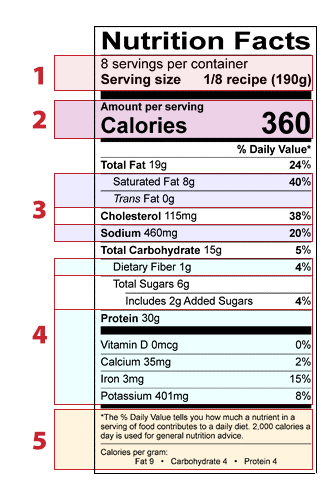
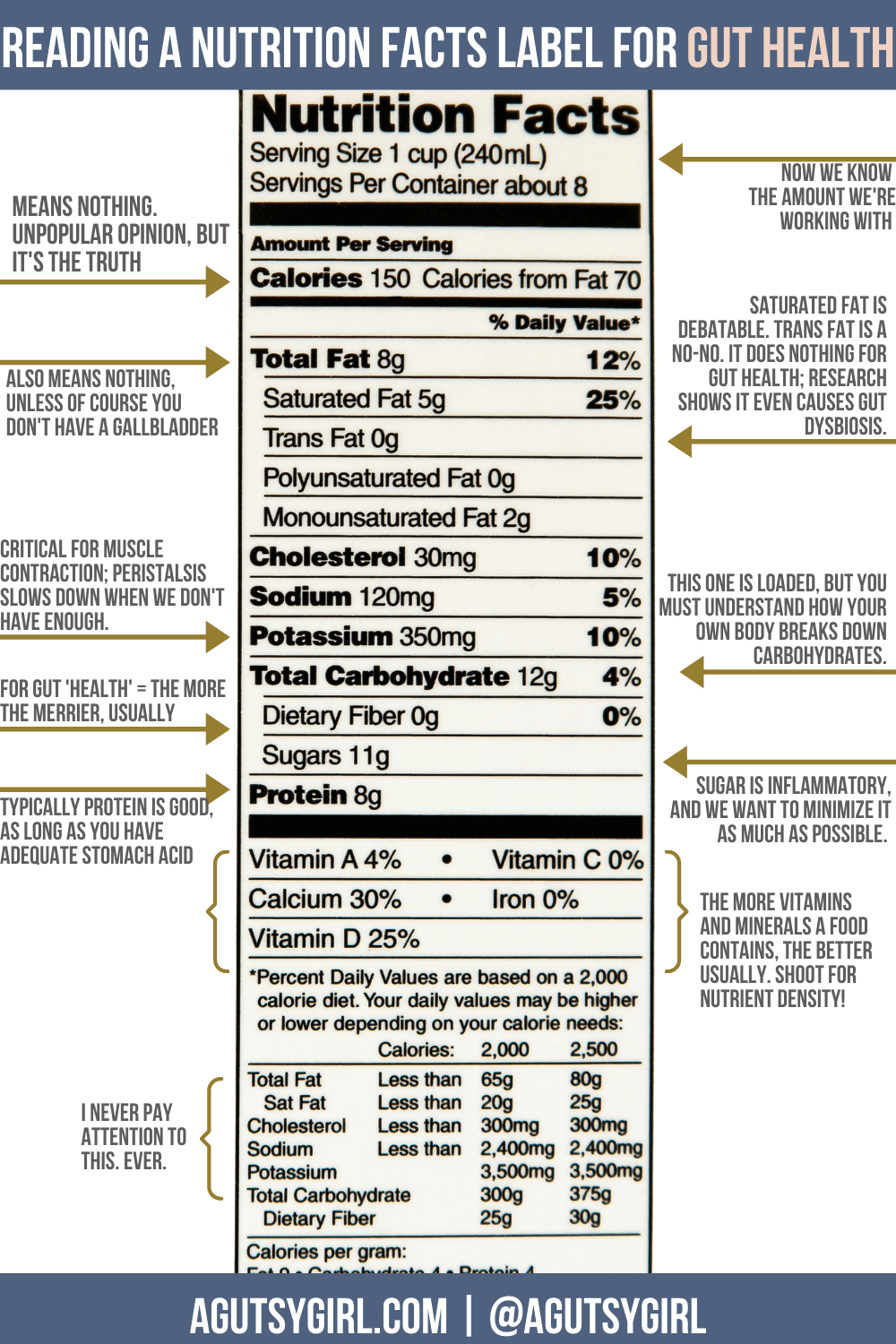

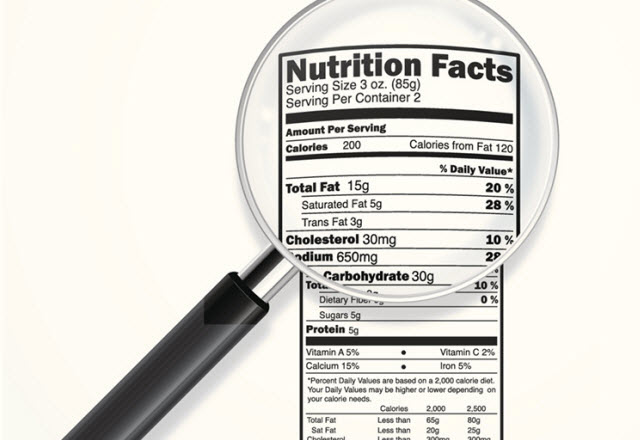
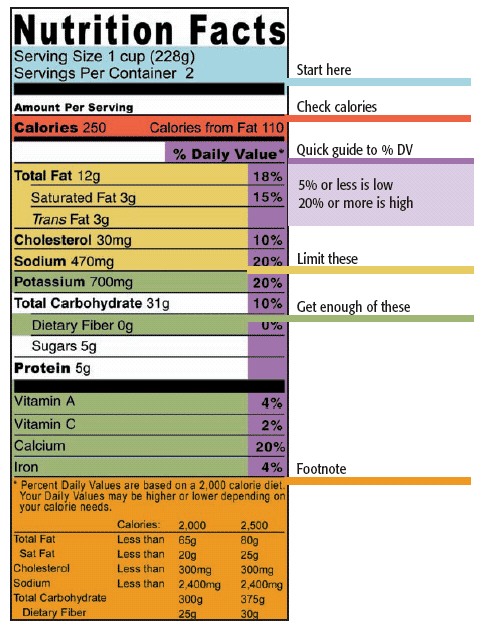
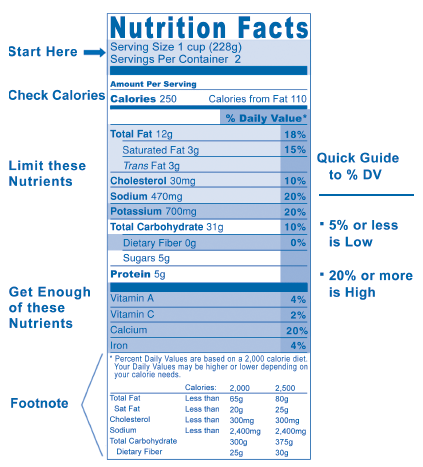
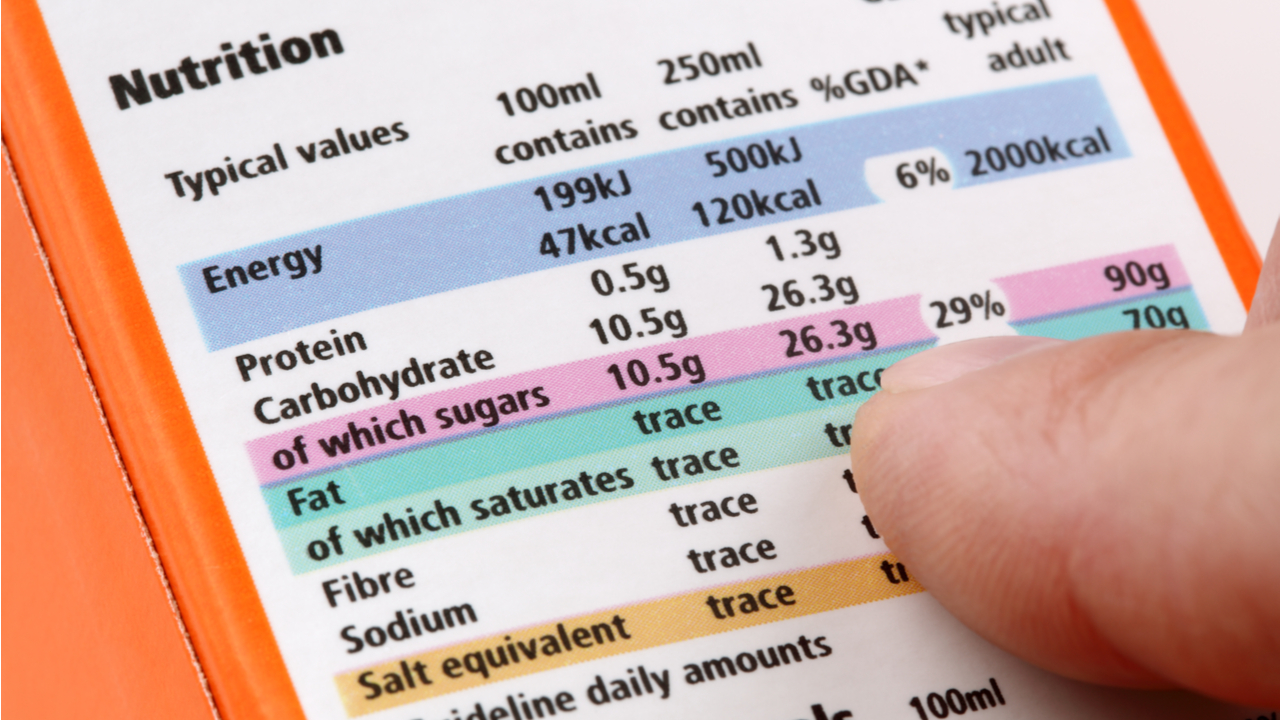

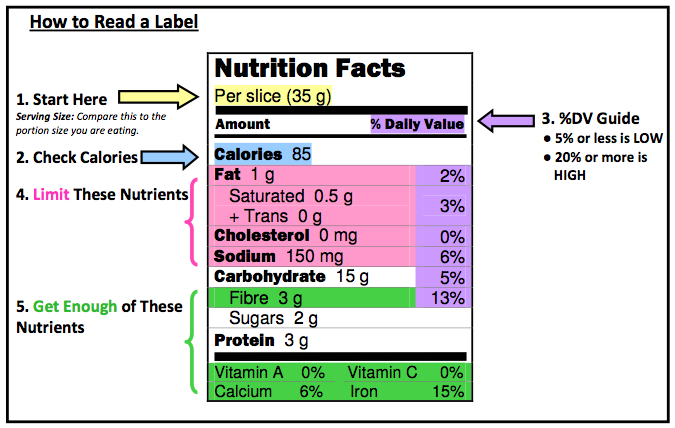
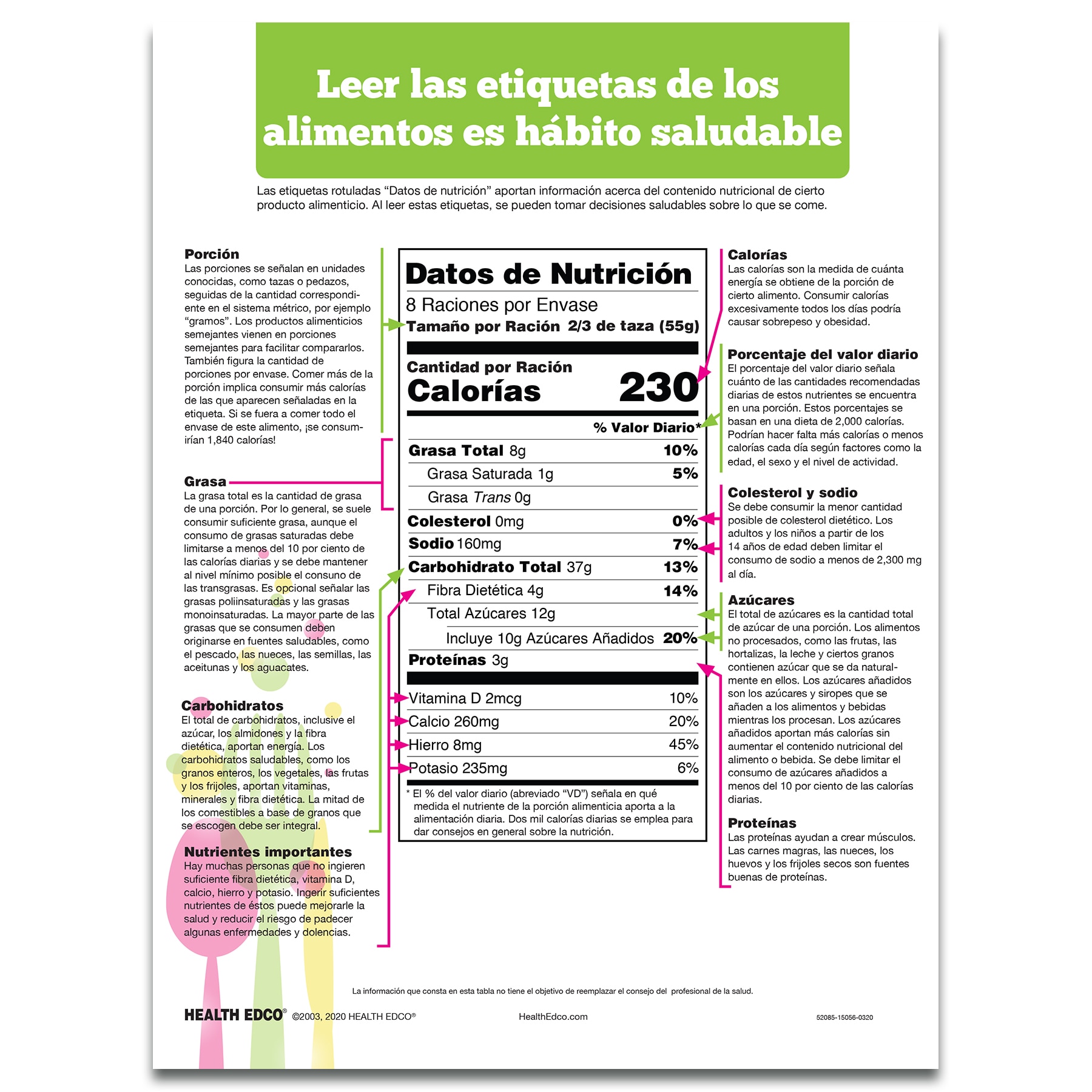

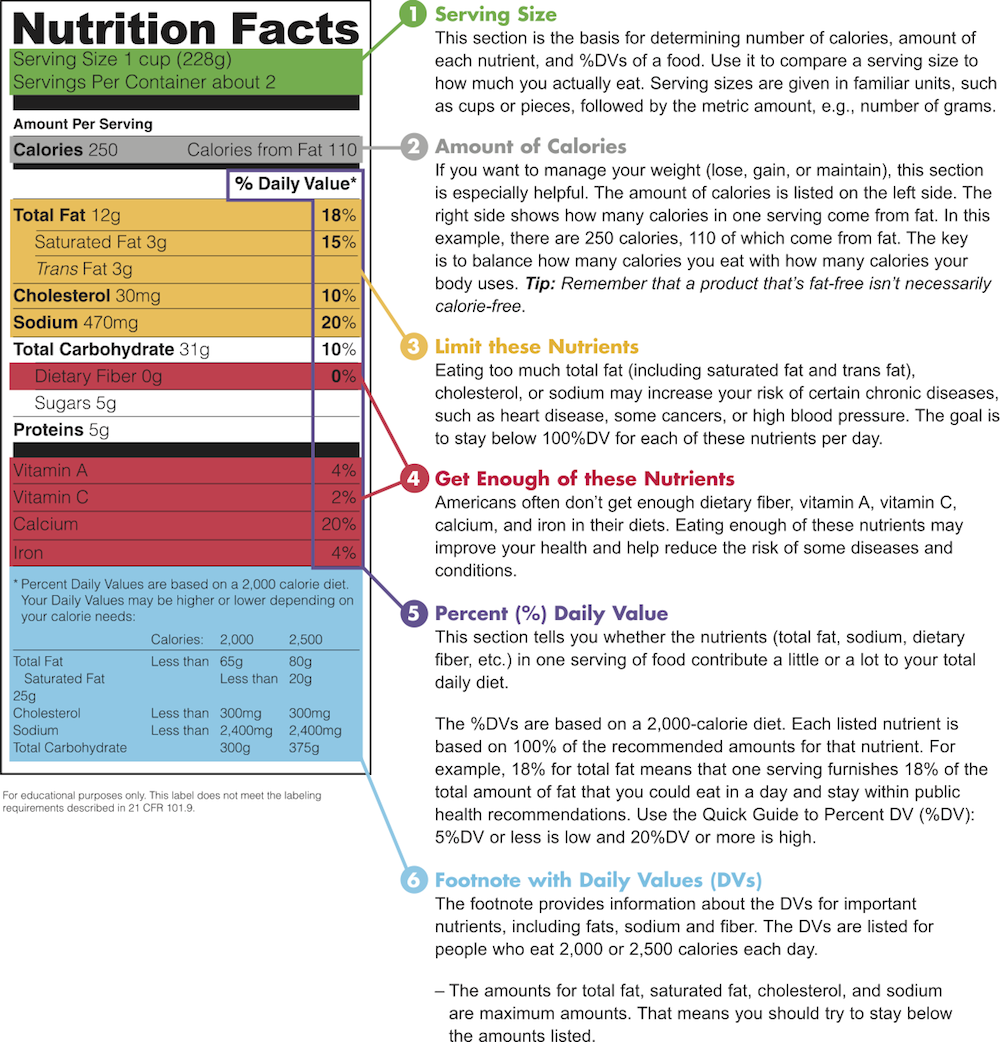
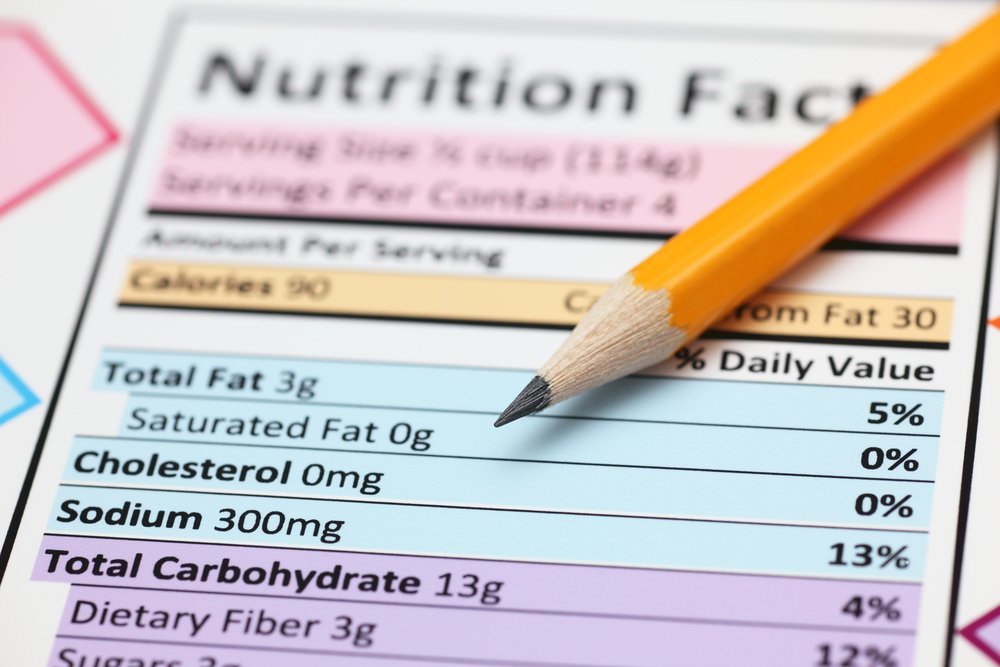
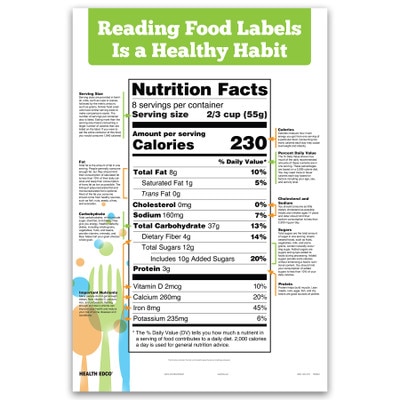
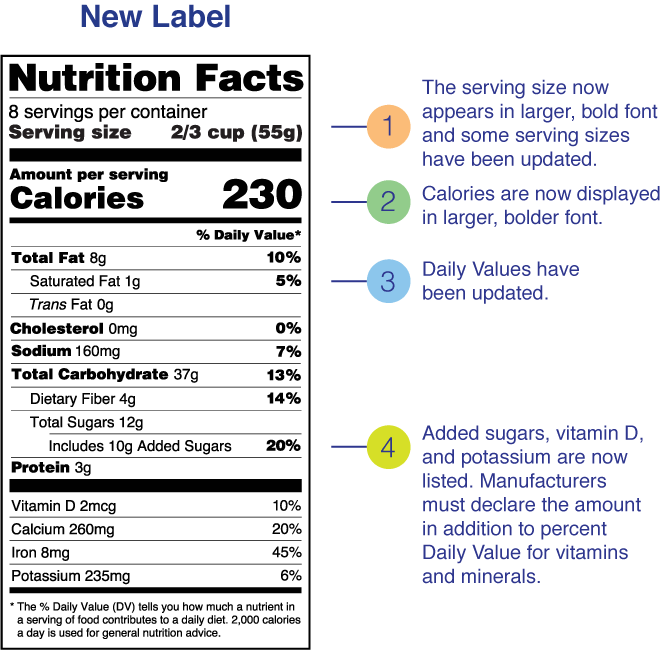
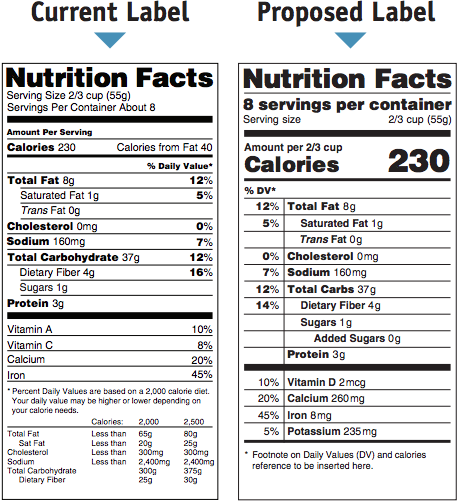
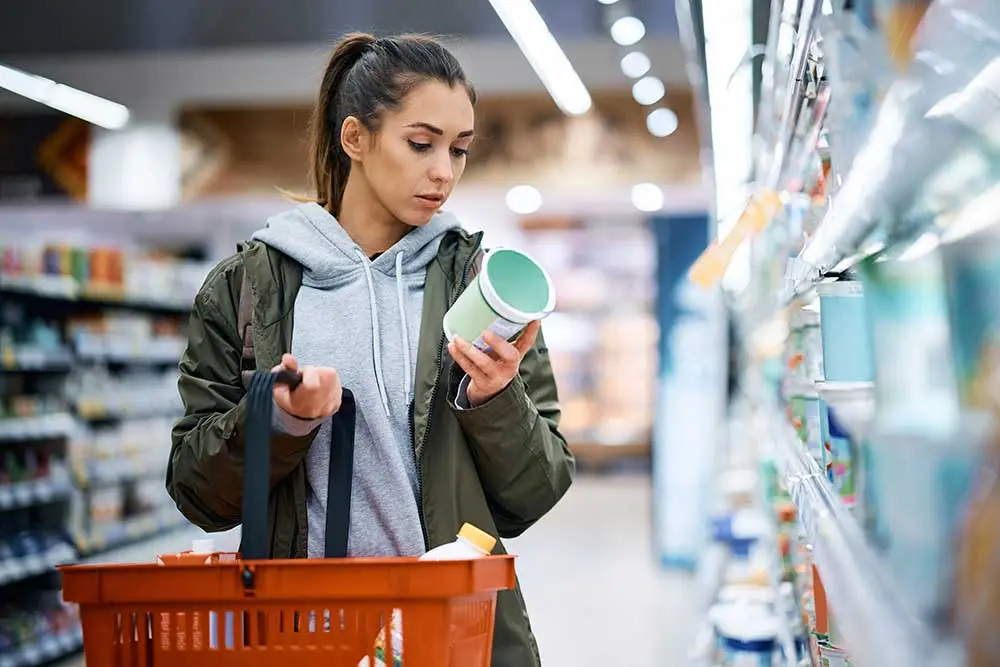
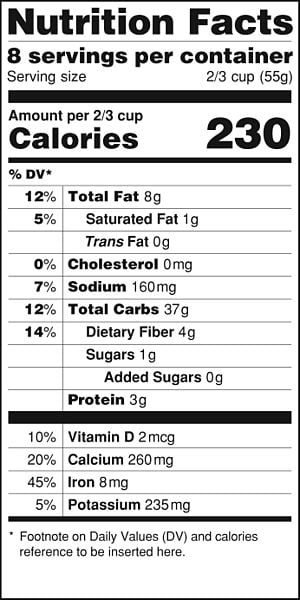

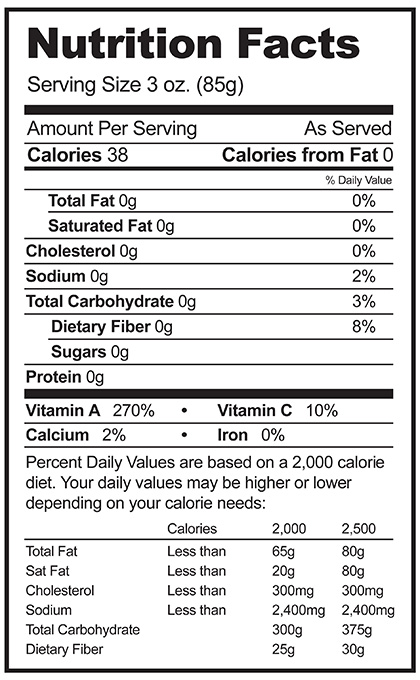

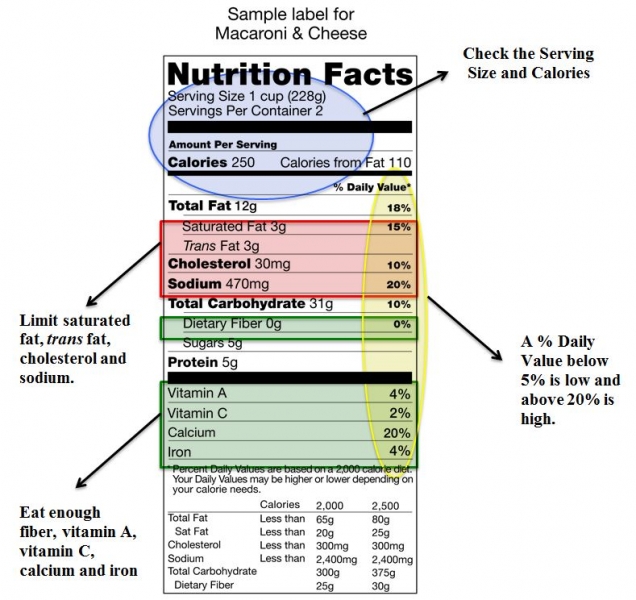




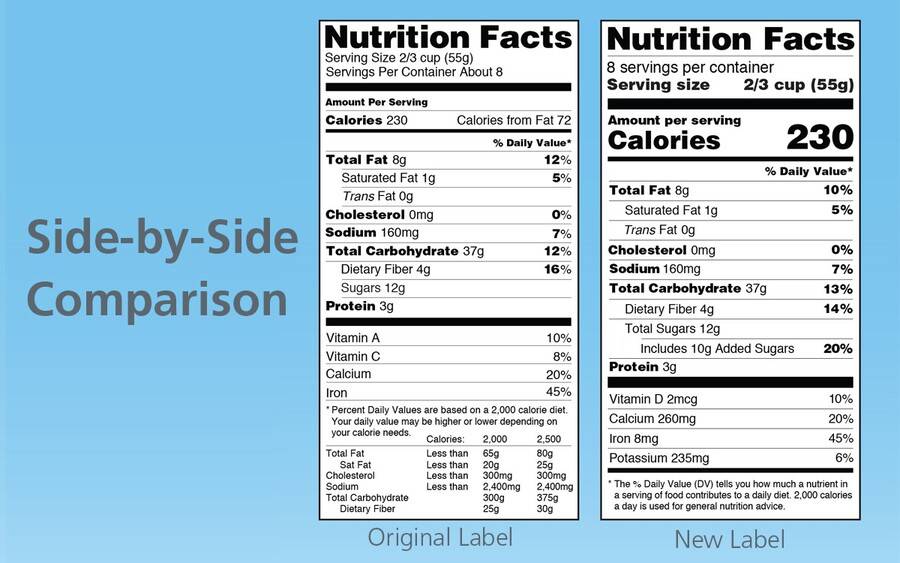

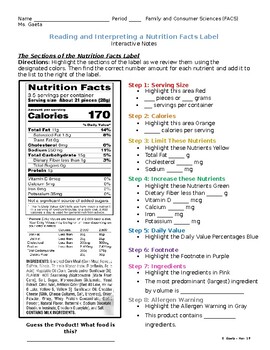


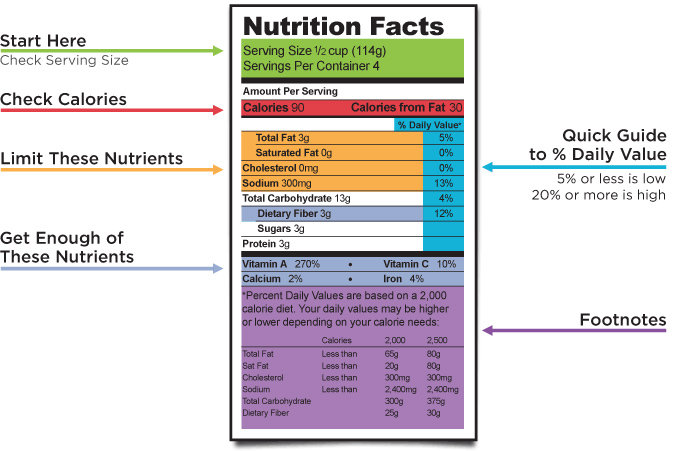
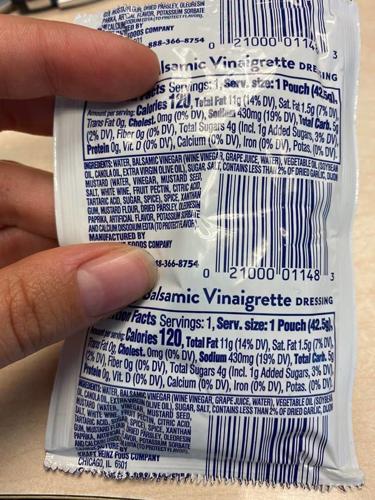
Post a Comment for "39 reading food nutrition labels"